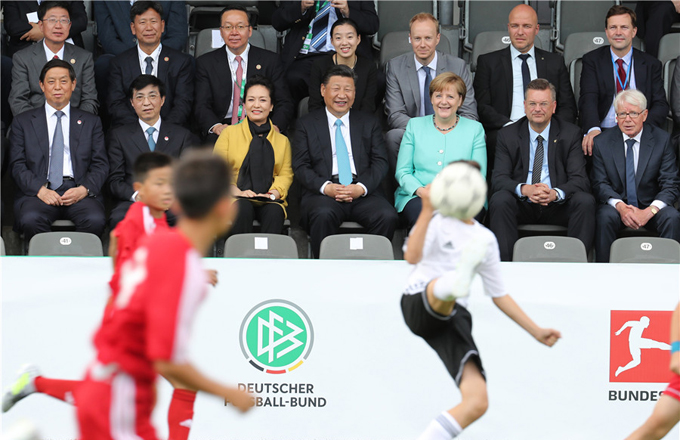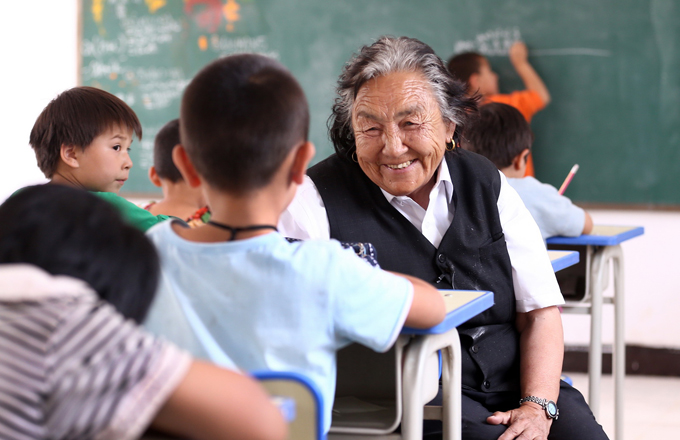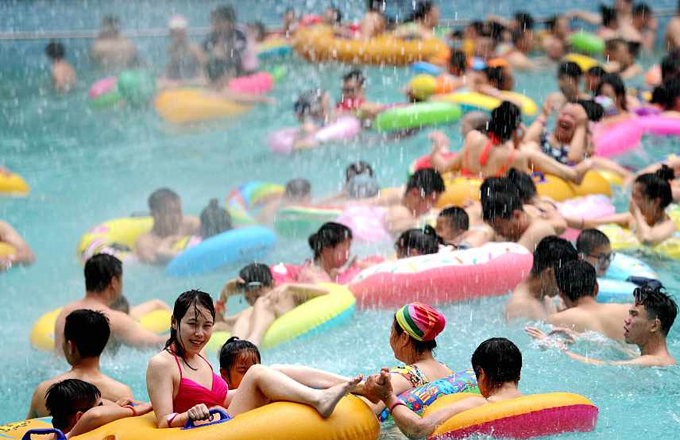Increasing number of middle schools offer Russian language courses
More middle schools in China are offering Russian language courses, as students have shown a growing interest in learning the language at the secondary school level, educators said.
The Russian program at Jianwen Foreign Language School, a high school in Shenzhen, Guangdong province, attracted only 24 students when it was established in 2011. But the number of students expressing interests in the program swelled quickly, especially after the Belt and Road Initiative was proposed, according to Li Guangming, vice principal of the school.
"Now the program of our school has almost 250 students," he said. "About 80 graduates of the program were accepted by higher education institutions in Russia, such as Saint-Petersburg State University and the Russian Academy of Arts."
Many people know that the English language has long been a dominant foreign language taught at middle schools of China and is tested annually in China's gaokao, the national college entrance exam.
But few know that there was a time when Russian also played a similar role in China's middle schools, particularly in provinces that border Russia, such as Heilongjiang, said Huang Mei, director of the School of Russian Language and Culture at Beijing Foreign Studies University.
"Although such a situation is no longer all-pervading in today's China, there have been signs, in recent years, that Chinese people's interest in learning the Russian language is reviving," she said. "One of key reasons is that the implementation of the Belt and Road Initiative has facilitated close exchanges and cooperation between China and Russian, as well as other Central Asian countries such as Kazakhstan and Ukraine, where the language is also used among local people."
No 14 Middle School of Wuhan, Hubei province, for example, used to offer Russian language courses between 1985 and 2002, but ceased for the following 15 years.
In September last year, the school cooperated with the University of Moscow in Russia to resume the teaching of Russian as a language, and opened a "Russian language experimental class", with plans to recruit 40 students.
"But to the surprise of the school authorities, more than 400 students and parents attended the introduction meeting and showed interest of joining the class," said Li Yanxia, director of the school's admissions office.
She found that the more a parent knew about the Belt and Road Initiative, the more he or she would support children to join the experimental class.
"The mother of a student I know is doing tea businesses with Russia and knows well about the export of Chinese tea to Russia. She has confidence in the need for talent who can speak the Russian language," Li Yanxia said.
Students admitted to the program need to study China's high school courses and the Russian language for two years. They then attend a one-year preparatory course at the University of Moscow before sitting the university's entrance exam, she said.


















